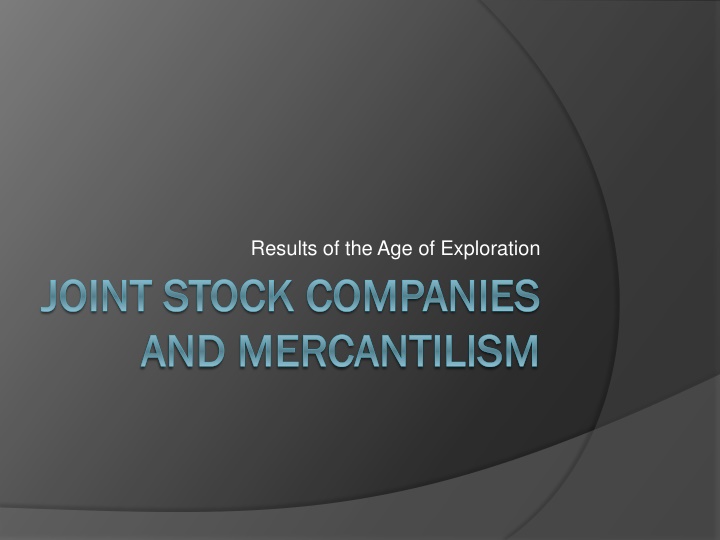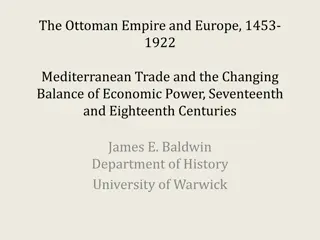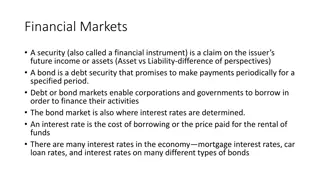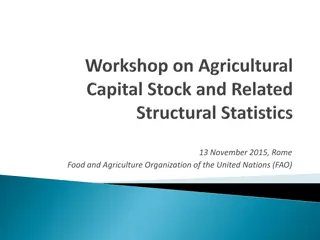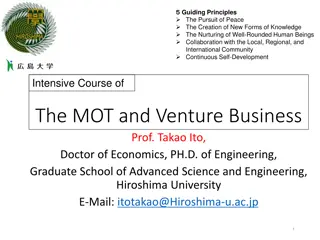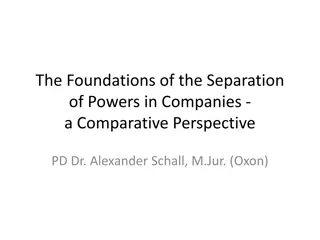Economic Impact of Joint Stock Companies and Mercantilism During the Age of Exploration
The Age of Exploration led to the rise of Joint-Stock Companies, a precursor to modern corporations, which allowed pooling of wealth for overseas ventures. This era also saw the emergence of Mercantilism, a policy focusing on accumulating wealth through favorable trade balances and colonial exploitation. The Commercial Revolution transformed Europe's economic landscape, establishing colonial empires and influencing trade practices. Colonies supported Mercantilism by providing resources and markets for the mother country. These economic strategies shaped the balance of power and wealth in Europe during the 16th and 17th centuries.
Download Presentation

Please find below an Image/Link to download the presentation.
The content on the website is provided AS IS for your information and personal use only. It may not be sold, licensed, or shared on other websites without obtaining consent from the author.If you encounter any issues during the download, it is possible that the publisher has removed the file from their server.
You are allowed to download the files provided on this website for personal or commercial use, subject to the condition that they are used lawfully. All files are the property of their respective owners.
The content on the website is provided AS IS for your information and personal use only. It may not be sold, licensed, or shared on other websites without obtaining consent from the author.
E N D
Presentation Transcript
Results of the Age of Exploration JOINT STOCK COMPANIES JOINT STOCK COMPANIES AND MERCANTILISM AND MERCANTILISM
The Commercial Revolution The establishment of colonial empires in the Americans influenced the nations of Europe. New wealth from the Americas was coupled with a dramatic growth in overseas trade These prompted a new wave of business and trade practices in Europe during the 16thand 17thcenturies. This dramatically changed the economic atmosphere of Europe and became known as the Commercial Revolution.
Joint-Stock Companies (!!!) Worked much like a modern-day corporation. A number of people pooled their wealth for a common purpose Ex: VA Company going to Jamestown
Joint-Stock Companies Purpose = American colonization Took large amounts of money to establish overseas exploration While profits may have been great, so were risks Many ships never completed the long and dangerous ocean voyage Would only lose your small share if you invested and the colony failed
Mercantilism New economic policy A country s power depended mainly on its wealth It was wealth that allowed nations to build strong navies and purchase vital goods The goal of every nation became the attainment of as much wealth as possible!!!
Favorable Balance of Trade (!!!) A country could increase its wealth and power in two ways: It could obtain as much gold and silver as possible Second, it could establish a favorable balance of trade, in which it sold more goods than it bought
Colonies and Mercantilism A nation s ultimate goal was to become self- sufficient. Mercantilism went hand in hand with colonization, for colonies played a vital role in the new economic practice. Aside from providing silver and gold, colonies provided raw materials that could not be found in the home country, such as wood or furs. In addition to playing the role of supplier, the colonies under mercantilism also provided a market The home country could sell its goods to their colonies
Main Characteristics of Mercantilism 1. A nation s wealth depends on its stores of bullion (gold and silver)...(achieving more wealth/prosperity means another nation suffers a simultaneous loss of wealth/prosperity); 2. Favorable balance of trade (when goods exported of greater value than those imported); 3. Raw materials from colonies to the mother country; 4. Colonies to become markets for the Mother Country s goods; 5. Closed market: required to purchase manufactured goods from Mother Country
http://www.investopedia.com/video/play/ mercantilism/
